7-11 Celebrates 50 Years
And Lawson makes "bagels".
7-11’s fiftieth anniversary is coming up. Because 7-11 was the first conbini, the conbini’s fiftieth anniversary is coming up! They are celebrating the milestone with a look back at their storied history.
7-11 opened its first store in May 1974. Over its fifty years it didn’t just trailblaze the conbini, it transformed the retail industry. What began as ripples of innovative products and operations behind 7-11’s doors evolved into a tsunami that transformed Japan and global retail.
Its first breakthrough product was the onigiri. Japanese mothers owned the onigiri until 7-11 began selling it in 1978. They strategically distinguished their rice balls from the homemade competition by keeping the nori seaweed dry resulting in a crispy texture. To achieve the texture they had to innovate the packaging. Seaweed becomes limp against warm rice. So, they invented the “parachute” wrap, which separates the rice from the seaweed. When opened correctly – always a struggle for first-timers - the wrap magically gives way to the nori resulting in perfectly dry seaweed wrapped around the rice.
From then on Japanese mothers never stood a chance.
The name 7-11 refers to the store’s original operating hours: 7AM-11PM. In 1975 it transitioned to 24-hours. How many drunken nights has a 7-11 saved you from oblivion? The toilet receives a surge of vomit after too many Strong Zeroes or a case of Pocari Sweat with two nikuman keeps a hangover at bay.
But 7-11 did more than just pioneer new products and service hours. Behind the scenes 7-11 developed breakthrough operations. In 1978 it began mixed deliveries, whereby trucks picked up products from multiple suppliers to simplify logistics. Previously, it dedicated one truck to one supplier, which led to up to 70 trucks delivering to one store every day. It must have been chaos.
Of even greater significance was the introduction of the Point-of-Sale (POS) system in 1982. Barcodes and computers enabled management to precisely order every item. Stores would have exactly what customers wanted when they wanted it.
It’s worth mentioning that the father of the Toyota Production System, Taiichi Ohno, took on 7-11 as a client after he left Toyota in a fury following leadership’s decision to anoint the finance guy as president in 1978 instead of him. Full of anger he established a company called NPS – New Production System – whose mission was to become a business force even greater than Toyota.1 It didn’t quite work out that way. But Ohno and his right-hand man, Kikuo Suzumura, did terrorize some Japanese executives into competence, including 7-11’s. Their tactics were not in the model of Amy Edmonson’s “safe spaces”. In his fabulous account of the consultancy New Production System author Isao Shinohara describes Suzumura bringing a CEO to the top shelf of his warehouse racks and telling him to jump off to kill himself because he was too stupid to run his company.
I don’t think it’s a coincidence that 7-11 began mixed deliveries in the same year Ohno left Toyota. After all, it’s a practice Toyota pioneered and Ohno likely oversaw if not conjured up himself. I can imagine an angry Ohno telling the then 7-11 president to drown himself in the oden tank because anyone allowing 70 trucks to hit every store every day was too dumb to run a company.
There are too many innovations to count – from the introduction of ATMs in 2001 to digital money and point cards in 2007 – 7-11’s history of innovation is astonishing. It is absolutely worth checking out the website. And if you can’t read Japanese just copy and paste into Google translate.
Item of the Week
Everyone enjoys choux cream. Eclairs are just big choux creams. By the transitive property of choux cream everyone really loves eclairs.
And Lawson isn’t just serving an eclair, it’s a big eclair, covered in chocolate, and stuffed with so much chocolate pastry cream you could soak in it like an outdoor onsen in the middle of winter.
From the Dumpster
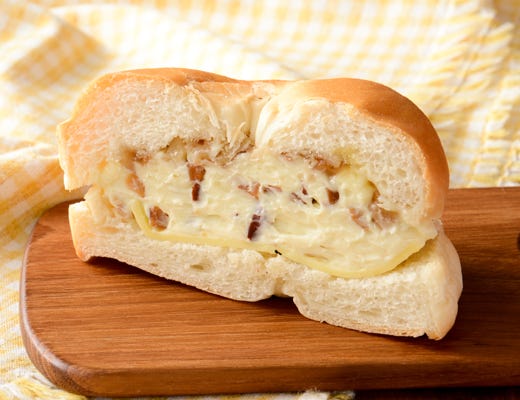
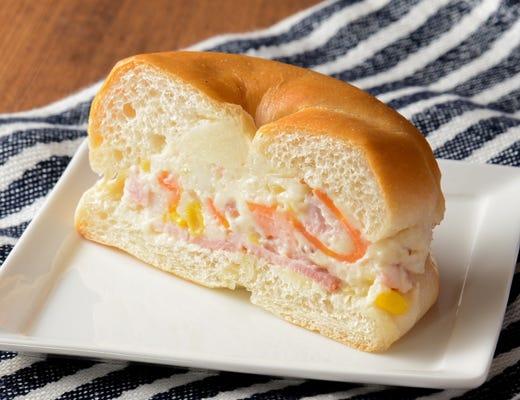
Lawson is launching two “bagels”. A cursory inspection reveals these are hardly the dense, chewy dough with a thin and crispy crust that makes a bagel a bagel. Instead, these are shokupan, pumped with air like balloons and shaped into rings. Lawson should serve it tied to a string to keep it from floating away.
Somehow Lawson has made them worse with two outrageous fillings: honey, nuts, and cream cheese on the left and potato salad with (fake) bacon on the right. I can forgive the honey, nuts, and cream cheese because that may actually be good. But potato salad? On a bagel? With a strip of (fake) bacon? My mind can take all of this in. My neurons are breaking down. I can only respond with “As an AI language model I am not able to process what the fuck this is.” I need another $250 billion of compute power to be able to reason my way through potato salad on a “bagel”.
Get More Hot Conbini Action
That wraps up this week’s newsletter. Keep in touch with all your conbini needs through:
🐥❤️Spread the conbini love ❤️🐥
Curiously, several of Ohno’s disciples created a consultancy in the US called Shingijutsu, which translates to New Production System. So, Ohno and Suzumura had New Production System in Japan, while their mentees had Shingijutsu in the US! Perhaps it was a marketing trick.

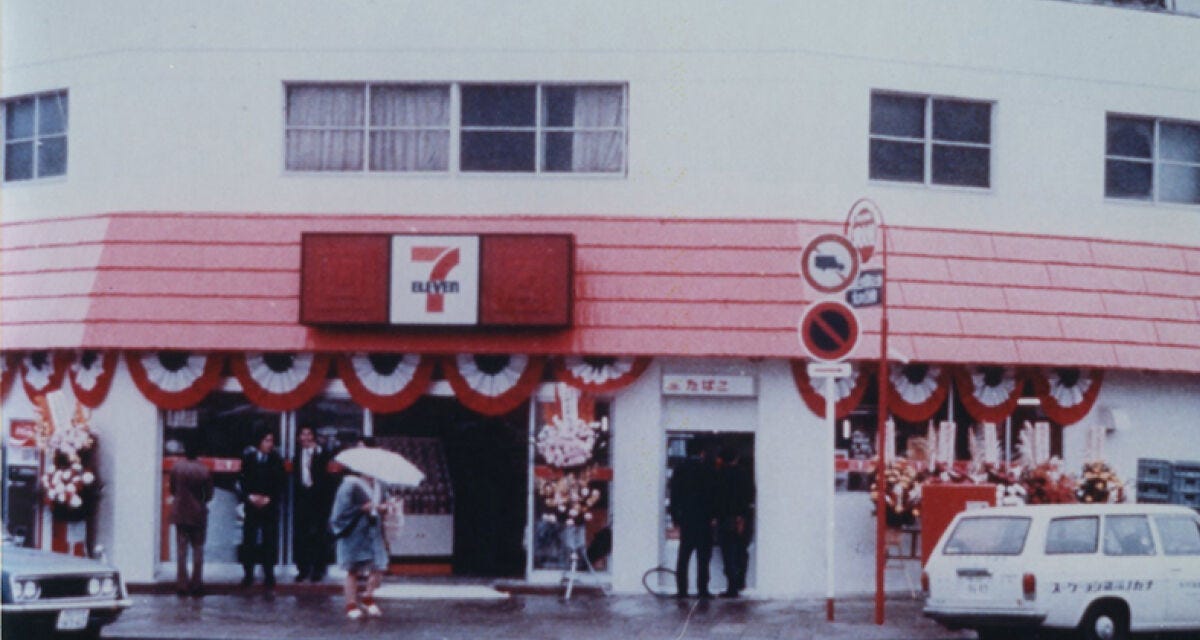
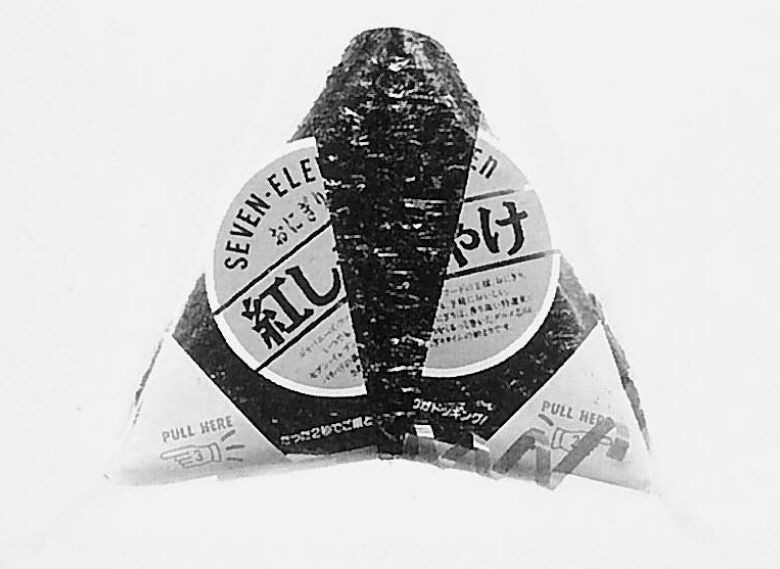

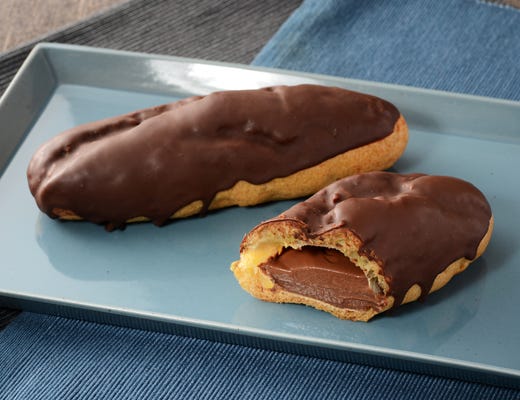

In 2023 the simplified delivery regime is common 'best practice' in supply chains. Fascinating that it wasn't the case not too long ago!